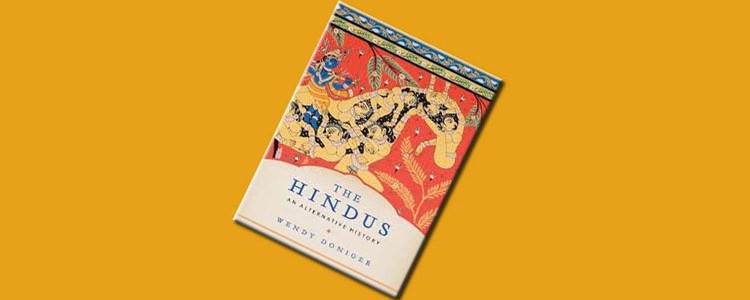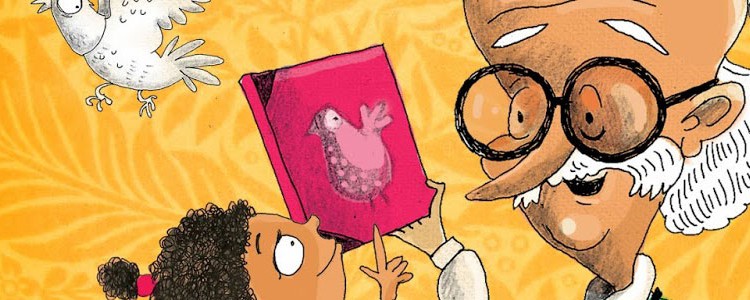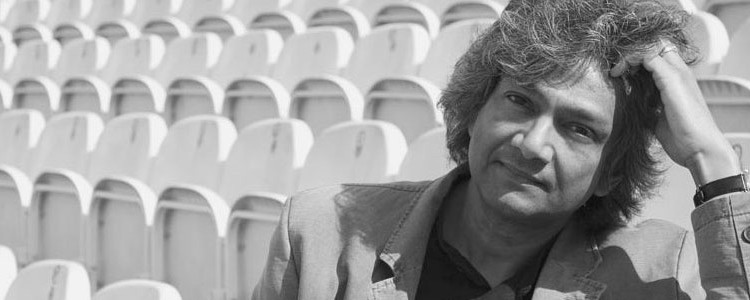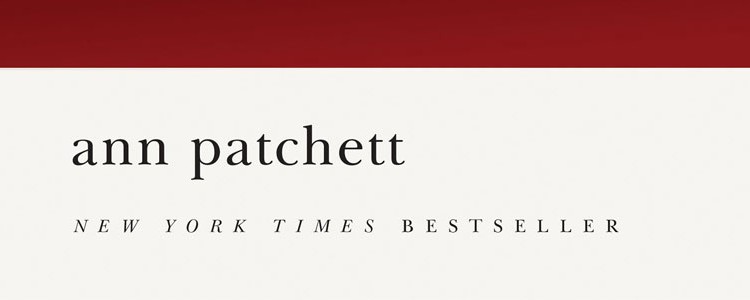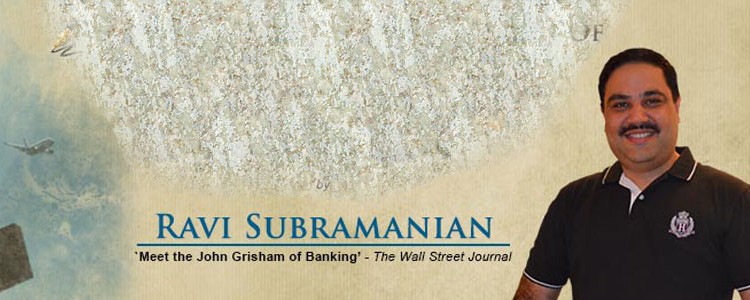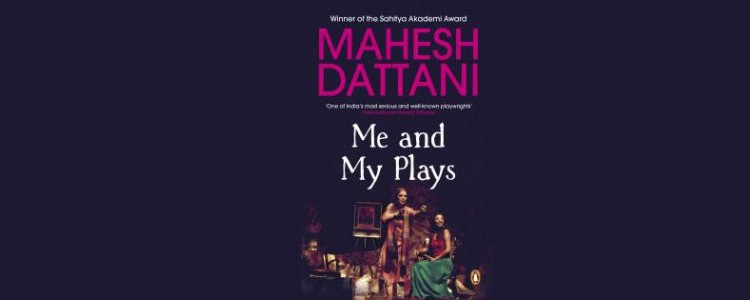 ( Here is the full programme for Jaipur Literature Festival, 17-21 Jan 2014. This list was uploaded by Arunava Sinha, translator and journalist, on his facebook page earlier this evening.)
( Here is the full programme for Jaipur Literature Festival, 17-21 Jan 2014. This list was uploaded by Arunava Sinha, translator and journalist, on his facebook page earlier this evening.)
The Jaipur Literature Festival 2014 programme. You’re welcome.
JANUARY 17, FRIDAY
FRONT LAWNS
10:00AM-11:00AM: Keynote Address – Amartya Sen
11:15AM-12:15PM: Antar Dhwani: Writing India, Speaking Bharat – Ganesh Devy, Shekhar Pathak in conversation with Malashri Lal
12:30PM-1:30PM: Face to Face – Ved Mehta in conversation with Samanth Subramanian
1:30PM-2:15PM: Book Launch – File Room by Dayanita Singh to be released by Geoff Dyer
2:15PM-3:15PM: Choices and Freedoms – Amartya Sen in conversation with John Makinson
3:30PM-4:30PM: Restless Women – Cheryl Strayed and Robyn Davidson moderated by Gaiutra Bahadur
4:30PM-5:00PM: Book Launch – Nazar Photography Monographs 02 – When Abba was Ill by Adil Hasan
5:00PM-6:00PM: Aakrosh – Neerav Patel, Hariram Meena and Irrfan Khan in conversation with Mahmood Farooqui
MUGHAL TENT
11:15AM-12:15PM: Habib Tanvir: A Life in Theater – Mahmood Farooqui and Piyush Daiya in conversation with Geetanjali Shree
12:30PM-1:30PM: Plantation – Emma Rothschild and Gaiutra Bahadur in conversation with William Dalrymple
2:15PM-3:15PM: Naman: Homage to a story teller – C P Deval, Mahmood Farooqui, Arjun Deo Charan, Prahlad Shekhawat and Irrfan Khan in conversation with Malashri Lal
3:30PM-4:30PM: Litcrit – Carsten Jensen, Geoff Dyer, Chandrahas Choudhury, Philip Hensher and Rana Dasgupta, moderated by Homi Bhabha
5:00PM-6:00PM: Crime and Punishment – Homi Bhabha, Martin Puchner introduced by Namita Gokhale. Dramatic enactment by Suhel Seth
BAITHAK
11:15AM-12:15PM: Cook on the Wild Side – Hugh Fearnley-Whittingstall in conversation with Jack Turner
12:30PM-1:30PM: Words Without Borders – Ananda Devi in conversation with Urvashi Butalia
2:15PM-3:15PM: Story of a Death Foretold – Oscar Guardiola-Rivera, introduced by Nicholas Shakespeare
3:30PM-4:30PM: Mahasamar – Narendra Kohli in conversation with Vartika Nanda
5:00PM-6:00PM: Leaving Iran – Fariba Hachtroudi, Sahar Delijani, Reza Aslan in conversation with Michael Axworthy
DURBAR HALL
11:15AM-12:15PM: The Bangla Whodunnit – Gautam Chakrabarti in conversation with Rupleena Bose, introduced by Homi Bhabha
12:30PM-1:30PM: Textures in Translation – Readings: Benyamin ,Joseph Koyippally, Anand, Chetna Satchidanandan introduced by Rahul Soni
2:15PM-3:15PM: Serendip – Readings – Nayomi Munaweera, Ru Freeman, and Romesh Gunasekera, introduced by Supriya Nair
3:30PM-4:30PM: The price you pay: How not to make money – Somnath Batabyal, Raj Kundra, Arghya Lehri, introduced by Kishwar Desai
5:00PM-6:00PM: Rebellions and Revolutions – Readings — Vaidehi, Kaajal Oza Vaidya, introduced by Rahul Soni
CHAR BAGH
11:15AM-12:15PM: Jonathan Franzen in conversation with Chandrahas Choudhury
12:30PM-1:30PM: The Essential Gloria Steinem – Gloria Steinem in conversation with Ruchira Gupta
2:15PM-3:15PM: White Tribes of Africa – Peter Godwin and Justin Cartwright in conversation with Maaza Mengiste
3:30PM-4:30PM: Citizen Elites: the Dominance of the Priviliged – Dipankar Gupta, Manvendra Singh, Lily Wangchhuk, in conversation with Mukulika Banerjee
5:00PM-6:00PM: The experiences of global war 1937- 1945 – Antony Beevor introduced by Rana Chhina
JANUARY 18, SATURDAY
FRONT LAWN
10:00AM-11:00AM: The Global Novel – Jhumpa Lahiri, Jonathan Franzen, Jim Crace, Maaza Mengiste, Xioaolu Guo, moderated by Chandrahas Chaudhry
11:15AM-12:15PM: Burdens of Identity – Zeruya Shalev, Salma, in conversation with Namita Gokhale
12:30PM-1:30PM: The Art of Biography – A N Wilson, Ray Monk, Richard Holmes and Andrew Graham-Dixion, moderated by Peter Godwin
1:30PM-2:15PM: Book release – Gone with the Vindaloo: Vikram Nair, Book release by Suhel Seth
2:15PM-3:15PM: The Interpreter of Stories – Jhumpa Lahiri in conversation with Rupleena Bose
3:30PM-4:30PM: The Non-fiction Renaissance – Antony Beevor, Katherine Boo, Geoff Dyer, Rana Dasgupta and Reza Aslan, moderated by William Dalrymple
4:30PM-5:00PM: Book Launch – Travails with Chachi by Louise Khurshid, released by Shashi Tharoor
5:00PM-6:00PM: Symmetry – Marcus du Sautoy, introduced by Jim al Khalili
6:00PM-7:00PM: Award Ceremony for the DSC Prize for South Asian Literature 2014
MUGHAL TENT
10:00AM-11:00AM: The Way of the Knife – Mark Mazzeti, Barnett Rubin, Adrian Levy and Ben Anderson, moderated by Jason Burke
11:15AM-12:15PM: M T : Chronicles of a Culture – M T Vasudevan Nair and Gita Krishnankutty in conversation with Ravi DC, introduced by Shashi Tharoor
12:30PM-1:30PM: Three Women, Three Africas – Maaza Mengiste, Nadifa Mohamad and Taiye Selasi, who will also introduce the session.
1:30PM-2:15PM: Book Launch – Peoples Linguistic Survey of India – Rajasthan ki Bhashayaen.
2:15PM-3:15PM: 1914:Remembering the 1st World War – Peter Stanley, Geoff Dyer, Maya Jasanoff, moderated by Rana Chhina
3:30PM-4:30PM: How to Write a Screenplay – Sabrina Dhawan in conversation with Nicholas Shakespeare
5:00PM-6:00PM: India at the crossroads – Louise Tillin, Sunil Khilnani, John Elliott, moderated by Meghnad Desai
6:00PM-7:00PM: Wittgenstein – Ray Monk. Introduced by John Ralston Saul
DURBAR HALL
10:00AM-11:00AM: Caravaggio – Andrew Graham Dixion, introduced by Partha Mitter
11:15AM-12:15PM: The Hunting Dogs – Jørn Lier Horst, in conversation with Kishwar Desai
12:30PM-1:30PM: Bibliomania – Nadeem Aslam, Cyrus Mistry, Carsten Jenson, introduced by Mita Kapur
2:15PM-3:15PM: Harvest/The Northern Clemency – Readings — Jim Crace and Philip Hensher, introduced by Supriya Nair
3:30PM-4:30PM: Shabd Sansar – Nand Chaturvedi in conversation with Madhav Hada, introduced by Nand Bhardwaj
5:00PM-6:00PM: Seasons of Flight – Farah Ghuznavi, Manjushree Thapa, introduced by Ritu Menon
6:00PM-7:00PM: Portraits – Readings: Ivan Vladislavic and Rukmini Bhaya Nair introduced by Rahul Soni
BAITHAK
10:00AM-11:00AM: Writing, Meri Jaan – Jerry Pinto in conversation with Mita Kapur
11:15AM-12:15PM: Behind the Veil: Women Writers of the Islamic World – Nadifa Mohamad, Bejan Matur, Sahar Delijani, Shireen el Feki and Fariba Hachtroudi, in conversation with Urvashi Bhutalia
12:30PM-1:30PM: Why India Votes – Mukulika Banerjee, Manvendra Singh in conversation
2:15PM-3:15PM: How can the sacred be sensous? – Vidya Dehejia in conversation with George Michell, Kavita Singh and Naman Ahuja. Moderated by William Dalrymple
3:30PM-4:30PM: Vanishing Voices: The great Andamanese Languages – Anvita Abbi in conversation with Arshia Sattar
5:00PM-6:00PM: The Forgotten Ally: The Making of Modern China – Rana Mitter, introduced by Carlos Rojas
6:00PM-7:00PM: Dharohar: The Legacy of Rajasthani Culture – Sundeep Bhutoria, Sarpanch Rajawat, K.C. Maloo, in conversation with Rima Hooja
CHAR BAGH
10:00AM-11:00AM: Magnificent Delusions – Husain Haqqani , Robert Blackwill in conversation with Shyam Saran
11:15AM-12:15PM: Who Will Rule the World? – Amartya Sen, Oscar Guardiola-Rivera, Xiaolu Guo and Rana Mitter, moderated by Dipankar Gupta.
12:30PM-1:30PM: Bollywood Nation – Vamsee Juluri, Meghnad Desai, Irrfan Khan, moderated by Rupleena Bose
2:15PM-3:15PM: Bhasha Paribhasha – Vaidehi, Sachin Kundalkar, C.P. Deval, moderated by Navtej Sarna
3:30PM-4:30PM: The Paradoxes of Growth and Development – Shashi Tharoor, Mukulika Banerjee, Ravi Venkatesan, in conversation with Dipankar Gupta
5:00PM-6:00PM: Storytelling Around the Globe – Kavita Singh, Taiye Selasi, Xiaolu Guo, led by Kiku Adatto
6:00PM-7:00PM: The Bone Season – Samantha Shanon in conversation with Supriya Nair
JANUARY 19, SUNDAY
FRONT LAWNS
10:00AM-11:00AM: Writing the Self: On Memoir and the Autobiographical Novel – Ru Freeman, Ved Mehta, Joseph O’Neill, and Philip Hensher, moderated by William Suttcliffe
11:15AM-12:15PM: Raj aur Samaj: Democracy and the People – Kalyani Shankar, Navin Chawla and Pavan Varma in conversation with Ravish Kumar
12:30PM-1:30PM: The Rasa of Language: On Art, Pleasure and Technology – Vikram Chandra in conversation with Vidya Dehejia
1:30PM-2:15PM: Book Launch – In the open: Sculptures of KS Radhakrishnan, by Johny ML
2:15PM-3:15PM: Casualties of Love and Sex: The New Gender Fluidity –Margaret Mascarenhas, Mahesh Dattani, Sachin Kundalkar, in conversation with Bachi Karkaria
3:30PM-4:30PM: Jesus the Man, Jesus the Politician – Reza Aslan in conversation with A.N Wilson
4:30PM-5:00PM: Launch of the Australia India Institute Foreign Policy Series
MUGHAL TENT
10:00AM-11:00AM: History Strikes back and the Collapse of Globalism – Hubert Vedrine, John Ralston Saul, in conversation with Shashi Tharoor
11:15AM-12:15PM: The Immortals – Amish Tripathi in conversation withMeru Gokhale
12:30PM-1:30PM: The Cricket Novel – Joseph O’Neill, Shashi Tharoor, moderated by Samanth Subramanian
1:30PM-2:15PM: Vikas Khanna – Urdu Mein Hindustan
2:15PM-3:15PM: Javed Akhtar introduced by Ashok Vajpeyi.
3:30PM-4:30PM: Confronting the Classics – Mary Beard, Robin Cormack, Alex Watson in conversation with Vidya Dehejia and Naman Ahuja.
5:00PM-6:00PM: Freedom, Opinion and Expression – John Ralston Saul, Peter Godwin, Jerry Pinto, moderated by Madhu Trehan
DURBAR HALL
10:00AM-11:00AM; At the sea side – Readings: Alison Mac Leod and Lara Feigel, introduced by Geoff Dyer
11:15AM-12:15PM: Rajasthan ki Vachik Parampara: Oral Scriptings – Kavita Singh, Piyush Daiya in conversation with Malashri Lal
12:30PM-1:30PM: Prisons of the Mind – Rani Shankar Dass, Margaret Mascarenhas, Preeta Bhargava and Vartika Nanda in conversation
2:15PM-3:15PM: Rajasthali – Bharat Ola, Mangat Badal, Manisha Kulshreshtha and Nand Bhardwaj introduced by Durga Prasad Agarwal
3:30PM-4:30PM: The roof beneath their feet – Readings: Geetanjali Shree, Buket Uzuner, introduced by Mita Kapur
5:00PM-6:00PM: Atmospheric Disturbances/ The Wall – Readings: Rivka Galchen and William Sutcliffe, introduced by Supriya Nair
BAITHAK
10:00AM-11:00AM: Beauty and Fidelity: Texts in Translation – Sachin Kundalkar, Geetanjali Shree, Carlos Rojas, Rahul Soni, moderated by Jerry Pinto
11:15AM-12:15PM: Liberty’s Exiles – Maya Jasanoff, introduced by David Cannadine
12:30PM-1:30PM: Savage Harvest – Navtej Sarna in conversation with Urvashi Butalia
2:15PM-3:15PM: Much Maligned Monsters – Partha Mitter, introduced by Vidya Dehejia
3:30PM-4:30PM: Chronicles of Conflict and Change – Anuradha Sharma Pujari, Esther Syiem, K Anis Ahmed, in conversation with Somnath Batabyal
5:00PM-6:00PM: The Shia Axis – Vali Nasr, Barnett Rubin, Barnaby Rogerson, Michael Axworthy, Jason Burke, moderated by Reza Aslan
CHAR BAGH
10:00AM-11:00AM: The Art and Politics of Science – Dr Harold Varmus in conversation with Madhu Trehan
11:15AM-12:15PM: Dispensable Nation: Afghanistan after the US Withdrawal – Vali Nasr, Barnett Rubin, Ben Anderson, Mark Mazzetti, and William Dalrymple, moderated by Barkha Dutt
12:30PM-1:30PM: I, Me and My Plays – Mahesh Dattani in conversation withSanjoy Roy. Book Launch of I, Me and My Plays and Odiya edition of Dance like a man translated by Manu Dash
2:15PM-3:15PM: The Literature of War and Revolution – Antony Beevor, Artemis Cooper, Maaza Mengiste, Otto De Kat, Lara Figel, moderated by Rana Dasgupta
3:30PM-4:30PM: Raag Pahadi: Losing Himalayan Languages – Prasoon Joshi and Shekhar Pathak in conversation with Manjushree Thapa
5:00PM-6:00PM: Justice: What’s the right thing to do? – Michael Sandel, introduced by Homi Bhabha
JANUARY 20, MONDAY
FRONT LAWNS
10:00AM-11:00AM: Has Globalism Failed? Markets, Morals, and the Dictatorship of Reason – A dialogue between Michael Sandel and John Ralston Saul, chaired by Sunil Khilnani
11:15AM-12:15PM: Parde Ke Peeche: The Scriptwriters Story – Sachin Kundalkar, Mahesh Dattani, in conversation with Rupleena Bose
12:30PM-1:30PM: Capital – Rana Dasgupta in conversation with William Dalrymple
1:30PM-2:15PM: Book Launch – Through a Feudal Window by Indrajit Singh Rathore
2:15PM-3:15PM: Conquering the Chaos : Empowering the Future – Yashwant Sinha, Ravi Venkatesan, Anand Kumar and Kumar Galhotra in conversation with Paranjoy Guha Thakurta
3:30PM-4:30PM: Black Holes, Worm Holes and Time Machines – Jim al Khalili, moderated by Marcus du Sautoy
4:30PM-5:00PM: Book Launch – Jaipur: Gem in India by Dr D K Taknet
5:00PM-6:00PM: Each Other’s Stories – Ekta Kapoor in conversation with Siddharth Dhanvant Shanghvi
MUGHAL TENT
10:00AM-11:00AM; Bright Young Things Of the Jazz Age – Lara Feigel, Sarah Churchwell and Nicholas Shakespeare in conversation
11:15AM-12:15PM: The Blue God: Conversations on Krishna – Kaajal Oza Vaidya with Meghnad Desai in conversation with Pavan Varma
12:30PM-1:30PM: Elephants in the Room: India and its Neighbours – Manjushree Thapa, K Anis Ahmed, Ahmad Rafay Alam, Lily Wangchhuk in conversation with Neelam Deo
1:30PM-2:15PM: Launch of Crime Writers Association of South Asia
2:15PM-3:15PM: Pompeii: The Life of Roman Times – Mary Beard, introduced by Barnaby Rogerson
3:30PM-4:30PM: The Political Imagination – Ritu Menon, Kalyani Shankar, Nilanjan Mukhopadhyay and Rani Shankar Dass in conversation
5:00PM-6:00PM: Sex and the Citadel – Shireen el Feki, moderated by Sahar Delijani
DURBAR HALL
10:00AM-11:00AM: The age of wonder/The Victorians – Readings: Richard Holmes and A.N Wilson introduced by Jonathan Shainin
11:15AM-12:15PM: Ek Vachan, Bahu Vachan – Manisha Kulshreshtha, Piyush Daiya introduced by Vartika Nanda
12:30PM-1:30PM: Sacred Games/ Blind Man’s Garden – Vikram Chandra, Nadeem Aslam, introduced by Supriya Nair
2:15PM-3:15PM: Death in a cold climate – John Lier Horst, Bina Ramani, Bhaichand Patel in conversation with Somnath Batabyal
3:30PM-4:30PM: Two Typewriters – Readings: John Ralston Saul and Adrienne Clarkson in conversation with Jonathan Shainin
5:00PM-6:00PM: The world’s in our hand – K Anis Ahmed, Esther Syiem, introduced by Meru Gokhale
BAITHAK
10:00AM-11:00AM: Nine Faces of Being – Anita Nair in conversation with Somnath Batabyal- Book Launch of Idris – Keeper of the Light
11:15AM-12:15PM: The Living Goddess – Isabella Tree introduced by Vidya Dehejia
12:30PM-1:30PM: A Fish Caught in Time- The Search for the Coelacanth – Samantha Weinberg introduced by Samanth Subramanian
2:15PM-3:15PM: The Language of Laughter – Indrajit Hazra, Shovon Chowdhury, moderated by Bachi Karkaria
3:30PM-4:30PM: Vijaynagar: The City of Victory – George Michell on Vijaynagar. Introduced by William Dalrymple
5:00PM-6:00PM: Poetry Wallahs – Rukmini Bhaya Nair, Margaret Mascarenhas, Salma, and Bejan Matur moderated by Rahul Soni
CHAR BAGH
10:00AM-11:00AM: Blue Planet, Green Earth – Shekhar Pathank, Suman Sahai in conversation with Ahmad Rafay Alam
11:15AM-12:15PM: The Seige – Adrian Levy moderated by Barkha Dutt
12:30PM-1:30PM: Khalnayak – Javed Akhtar, introduced by Kishwar Desai
2:15PM-3:15PM: Footloose – Nicholas Shakespeare, Isabella Tree, Robyn Davidson, Cheryl Strayed, moderated by William Dalrymple
3:30PM-4:30PM: Ogres and Others – Anita Nair, Anand Neelakantan, Ipsita Roy Chakraverti, in conversation with Arshia Sattar
5:00PM-6:00PM: The Great Gatsby – Sarah Churchwell in conversation with Chiki Sarkar
JANUARY 21, TUESDAY
FRONT LAWNS
10:00AM-11:00AM: The Coup – Samantha Weinberg and Michael Axworthy, moderated by Oscar Guardiola-Rivera
11:15AM-12:15PM: Pulling her Punches – Mary Kom
12:30PM-1:30PM: Coleridge and the Ancient Mariner – Richard Holmes, moderated by Rupleena Bose
1:30PM-2:15PM Book Launch – Nav matdata – Ek Rajnaitik Prayog Ki Anubhav Yatra, by Jyoti Kiran
2:15PM-3:15PM: We the Drowned: Writing the Sea – Carsten Jensen, Samantha Weinberg, and Nayomi Munaweera, moderated by Samanth Subramanium
3:30PM-4:30PM: On the post colonial couch – Nadifa Mohamad, Tash Aw, Romesh Gunesekara, Maaza Mengiste, moderated by Rana Dasgupta
5:00PM-6:00PM: Debate – Democracy is the worst form of government, except for all the rest
MUGHAL TENT
10:00AM-11:00AM: Reimaging Partition – Vishwajyoti Ghosh, Ahmad Rafay Alam, Urvashi Butalia, in conversation with Indrajit Hazra
11:15AM-12:15PM: Ornamentalism: How the British saw their Empire – David Cannadine in conversation with Maya Jasanoff
12:30PM-1:30PM: Geographies of Reading: Contexting the Indian Reader – Vivek Tejuja, Aditi Maheshwari, R Sivapriya, in conversation with Mita Kapoor
1:30PM-2:15PM: Book Launch – Traveling in, Traveling out: Namita Gokhale, Urvashi Butalia, Ipsita Roy Chakraverti
2:15PM-3:15PM: Spice : History of a temptation – Jack Turner introduced by Mary Beard
DURBAAR HALL
10:00AM-11:00AM: Colours of Longing – Readings: K R Meera, Anuradha Sharma Pujari, introduced by Aditi Maheshwari
11:15AM-12:15PM: Pointing from beyond the grave – Samantha Weinberg introduced by Jonathan Shainin
12:30PM-1:30PM: Red blooms in the forest – Readings: Nilima Sinha, Ipsita Roy Chakraverti introduced by Vamsee Juluri
2:15PM-3:15PM: Rogerson’s Book of Numbers – Readings: Barnaby Rogerson introduced by Marcus Du Sautoy
3:30PM-4:30PM: The Mythologists – Readings: Anand Neelakantan and Vamsee K Juluri introduced by Aditi Maheshwari
BAITHAK
10:00AM-11:00AM: Harvest – Jim Crace in conversation with Chandrahas Choudhury
11:15AM-12:15PM: Navras – Yatindra Mishra, T S Luthra, Arjun Deo Charan, Sawai Singh Shekhawat, Kaajal Oza Vaidya and Neerav Patel. Moderated by Vartika Nanda
12:30PM-1:30PM: The Traveller’s Tree: The Travel Writing of Patrick Leigh Fermor – Artemis Cooper, introduced by William Dalrymple
2:15PM-3:15PM: Jaipur Gharana – Ashok Vajpeyi, Prerna Shrimali and Dr Madhu Bhatt Telang, in conversation with Yatindra Mishra and Vibhas Book Launch
3:30PM-4:30PM: The Art of the Short Story – William Suttcliffe, Vikram Chandra, Joseph O’Neill, Rivka Galchen moderated by Philip Hensher
CHAR BAGH
11:15AM-12:15PM: Imagining the Past – The Art of the Historical Novel – Jim Crace, Otto De Kat, Alison Macleod, Tash Aw, and Justin Cartwright in conversation with Philip Hensher
12:30PM-1:30PM: The Mirror of Beauty – S.R. Faruqi, Mehr Farooqi in conversation with Chandrahas Choudhury. Readings by Sahil Farooqi
2:15PM-3:15PM: The Writer’s Life – Artemis Cooper, Lara Feigel, A.N Wilson, Nicholas Shakespeare moderated by Sarah Churchwell
3:30PM-4:30PM: Is There an Indian Way of Thinking – John Elliott, Geetanjali Shree , Pavan Varma in conversation with Ashok Vajpeyi
 “Dear friends, I have had literally hundreds of requests for interviews, in various media, and I can’t do them all. So here is a statement that you may use. I hope it’s enough; it’s the best I can do right now. I intend to write a longer article for
“Dear friends, I have had literally hundreds of requests for interviews, in various media, and I can’t do them all. So here is a statement that you may use. I hope it’s enough; it’s the best I can do right now. I intend to write a longer article for
